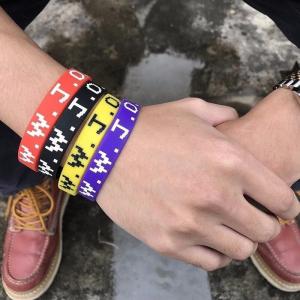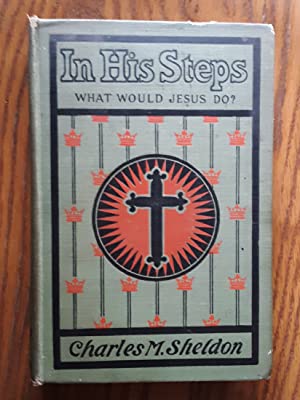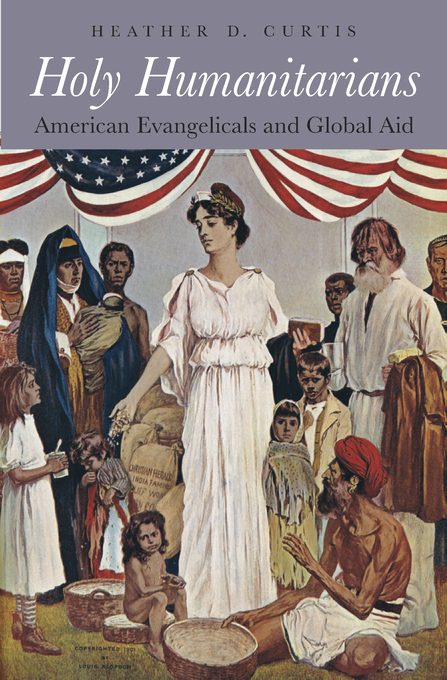Each morning my son carries a school-issued Chromebook to his central Kentucky high school with a big sticker on the lid that reads, “Who Would Jesus Bomb?” He tells me that it has provoked a lot of conversations with teachers and fellow students who don’t quite know what to make of it.
 Readers of a certain age know that this question—at least a variation of this question—harkens back to the 1990s. That’s when the more palatable “What would Jesus do?” dominated the evangelical scene. It all began when Janie Tinklenberg, a youth leader at Calvary Reformed Church in Holland, Michigan, handed out WWJD bracelets to her Holland, Michigan, youth group. The mnemonic device, she hoped, would encourage her own young charges to more fully live into a Jesus-centered ethic.
Readers of a certain age know that this question—at least a variation of this question—harkens back to the 1990s. That’s when the more palatable “What would Jesus do?” dominated the evangelical scene. It all began when Janie Tinklenberg, a youth leader at Calvary Reformed Church in Holland, Michigan, handed out WWJD bracelets to her Holland, Michigan, youth group. The mnemonic device, she hoped, would encourage her own young charges to more fully live into a Jesus-centered ethic.
The popularity of these bracelets exploded. After media personality Paul Harvey mentioned it on his radio show in 1997, the Lansing-based Lesco Corporation sold more than fifteen million of them in a single year. Those who understood the bracelets as more than a fashion statement used them to probe their behavior. If my own youth group was at all representative, the questions included: Should I watch this R-rated movie? Should I swear? Should I kiss a girl? Should I spend money on my first car or give it to a missionary?
Of course, WWJD has a history that stretches far earlier than the 1990s. The phrase traces back to a Kansas minister named Charles Sheldon, who wrote the 1896 blockbuster novel In His Steps: What Would Jesus Do? The narrative features a lukewarm church that is confronted by a homeless man who staggers into a worship service—and then dies after they ignore his pleas for help. Shamed by their neglect of the stranger in their midst, they pledge to live an entire year constantly asking the question that the stranger asked before he died: “What would Jesus do? Is that what you mean by following in his steps?” Like the youth who lived a century later, the novel’s characters probed personal behavior.
 But Sheldon, who was shaped by the social gospel movement, began to consider other moral questions too. What were the economic structures that pushed the homeless man toward homelessness? What laws could be passed or legislative packages funded that might empower him, lifting him out of poverty? In an industrialized age of robber barons, is capitalism idolatrous? Is it perhaps even rooted in the sin of greed?
But Sheldon, who was shaped by the social gospel movement, began to consider other moral questions too. What were the economic structures that pushed the homeless man toward homelessness? What laws could be passed or legislative packages funded that might empower him, lifting him out of poverty? In an industrialized age of robber barons, is capitalism idolatrous? Is it perhaps even rooted in the sin of greed?
Sheldon also applied WWJD to global affairs. Living in a hopped-up era of American imperialism, he wondered whether or not the United States should intervene in the Philippines, Cuba, or Turkey. Put another way, who would Jesus invade?
The editors of the Christian Herald, one of the most prominent publications of the 1890s, said that an energetic “Christian America” and an empowered military could forge a peaceful world community. Indeed, God would work through this Pax Americana as evangelical charity ushered in the millennial kingdom.
 Sheldon, who had become a household name among evangelicals, was much more circumspect. As Heather Curtis wrote in her terrific book Holy Humanitarians: American Evangelicals and Global Aid (2018), Sheldon declared his “abhorrence of war as it is being waged today in the Philippines and everywhere else.”
Sheldon, who had become a household name among evangelicals, was much more circumspect. As Heather Curtis wrote in her terrific book Holy Humanitarians: American Evangelicals and Global Aid (2018), Sheldon declared his “abhorrence of war as it is being waged today in the Philippines and everywhere else.”
In early winter of 1899, Sheldon went public with his critiques. In a special issue of the Christian Herald, he decried the “war spirit” that he said had become a disease in the United States. He began with the more traditional objections having to do with personal morality. American troops, he wrote, were abusing alcohol and participating in other immoral behaviors. Moreover, the Americans were imposing these less-than-Christian values on its colonial possessions. America was more likely, Sheldon wrote, to send “more hogsheads of rum than missionaries, more gallons of whisky than Bibles.”
Second, American intervention violated principles of equality, self-determination, and religious freedom enshrined in the Declaration of Independence. It was defended as a God-given opportunity to promote material prosperity and political liberty. But the U.S. was imposing its will and using the opportunity to increase its own wealth more than the Philippines’s prosperity.
Third, the United States had not historically demonstrated that it had the capacity “to vindicate or deliver those that are oppressed.” Sheldon cited the federal government’s treatment of Native Americans. Could it really nurture and respect the rights of “dependent races”? Could white American “civilization” really export authentic Christianity through the “exercise of brute force”? As Curtis sums up Sheldon’s perspective: “To disguise imperialism as a form of missions, philanthropy, or evangelical fellowship ‘under the cloak of patriotism’ was to betray American ideals and abandon the most basic teachings of Christ, the prince of peace.”
As his concern for drunkenness and promiscuity shows, Sheldon did not diminish personal holiness. He would want Christian Americans of the twenty-first century to interrogate behaviors toward neighbors: Is it my responsibility to object if someone tells an offensive joke? Should I tell the seller of an item at a yard sale if I know that it is worth substantially more than the posted price? Is it ok to move to better seats at a sporting event if they’re open? Should I take extra soy sauce packets from a restaurant? Is betting on horses permissible?
But the original author of WWJD, I think, would also want us to expand our menu of moral questions. If I’m a Russian Christian, should I support an invasion of Ukraine? If I’m an American Christian, should I tolerate policies that allow the military to torture members of the Taliban? Should I pay war taxes? How am I complicit in economic, cultural, and political systems that for centuries have privileged or centered certain groups over others? Should society encourage the editing of children’s genomes?
As a teenager, I rolled my eyes at hyper-individualized invocations of WWJD. It seemed deployed primarily to throw ice cold water over my youth group’s young lusts, not to fully reckon with the rigorous codes Jesus preached on the Mount of Beatitudes. Now that I’m a parent of teenagers, I’ll gladly deploy cold water, but it still doesn’t seem like enough. Perhaps we need more WWJD, not less.












